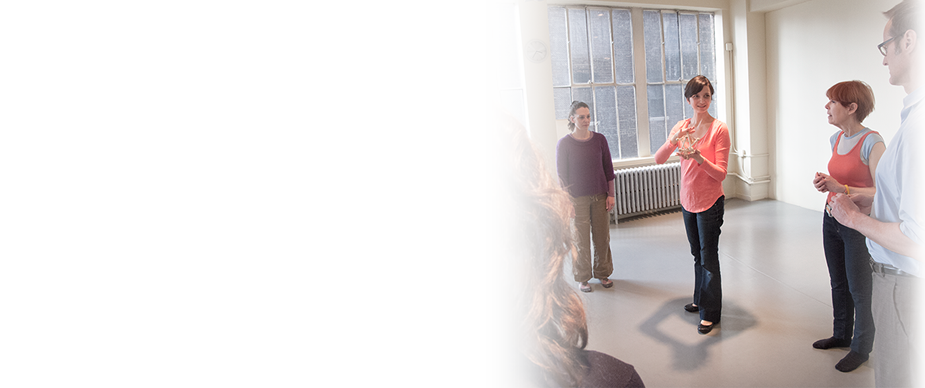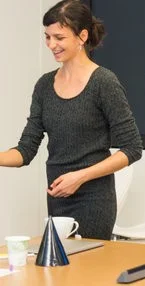From Hopeless Teenager to Posture Coach
/Me slouching at age 9
That's me on my first day at New York University, age 18. Hips and shoulders visibly out of alignment from scoliosis
People tend to assume that I've always had good posture and that it's just easy for me. That couldn't be further from the truth. At age 9, I was diagnosed with scoliosis. Scoliosis is when the spine curves to the side. The spine has normal curves that go front to back and act as natural shock absorbers. but a lateral (sideways curve) creates an imbalance. Severe scoliosis can lead to more serious issues or more extreme treatment, such as surgery.
Following a growth spurt at age 13 that caused my scoliosis to worsen, I began wearing a back brace until I stopped growing to help prevent further curvature. I didn't finish growing until I was 17, so I spent 5 years wearing a hard, plastic brace that fit tightly around my torso and made it hard to breath and eat. The brace also prevented torso from naturally supporting itself...what we might call core support, causing a lot of extra work to go on in other places, such as my neck and shoulders...not to mention that the brace was extremely uncomfortable. Te brace may have prevented my scoliosis from worsening, but it wrought havoc on my posture.
In 1997 at age 18, I began my undergraduate degree in theatre at New York University. I was thrilled to be there, but I quickly learned that my body was, well, dumb from the poor postural habits I'd developed. It had a mind of it's own and didn't seem to do what I wanted it to do. I got all sorts of helpful instructions in acting classes and voice classes and I really had no idea how to put them into practice. Trying harder lead to nothing more than feeling embarrassed and frustrated. I even felt uncomfortable socially and lacked confidence because I knew that my classmates knew that I just wasn't "getting" what I was supposed to be learning. I was very discourage and assumed that I simply wasn't very talented.
In addition to the learning and social difficulties I was experiencing from feeling "dumb" in my body, I was pretty much uncomfortable all the time. I felt restless and it was hard to sit or stand still for more than about a minute. I really had no idea what was wrong or what I could do. One day, my voice teacher suggested that I push my shoulders down (my shoulders were up to my ears). I tried it and it was so painful that I was in tears. This wasn't the solution. But what was?
Me this past year, age 38 and standing tall, offering a corporate workshop
In my third year at NYU, the students in my drama program had a required class in something I'd never heard of called The Alexander Technique. Walking into the class, I really had no idea what I was going to be doing. Was it a stretching or movement class? Would we be doing script analysis? Was Alexander a playwright?
The class ended up being none of these things. It was about postural habits and it was life-changing for me. When the teacher worked with me, I could actually start to feel what my body was doing. Before the class, I had a vague sense of not feeling well, feeling tired, stressed, stiff or restless all the time, and generally just not together. The amount of change that I got from just the first few classes was so significant that I started taking weekly private lessons. I started to feel as if a lightbulb, a kinesthetic lightbulb, had been turned on. I could feel what my habits were and I was learning to organize or coordinate my body in a different way so that everything was working more in unison. It felt like my body's mind was my mind. I was driving the ship.
These changes made a huge impact on my ability to focus and learn and quickly make progress in my acting a voice classes. I could follow instructions much more easily now because I felt in control of my body. Learning new skills is something I feel more and more confident with. I enjoy exercise and have taken up running, whereas I used to just get tired and sick if I worked out. The Alexander Technique helped that constant restless, tired, and stressed feeling go away. I can sit and stand still and upright and feel very comfortable.




